Enough is enough: India women fight to enter temples
- Published
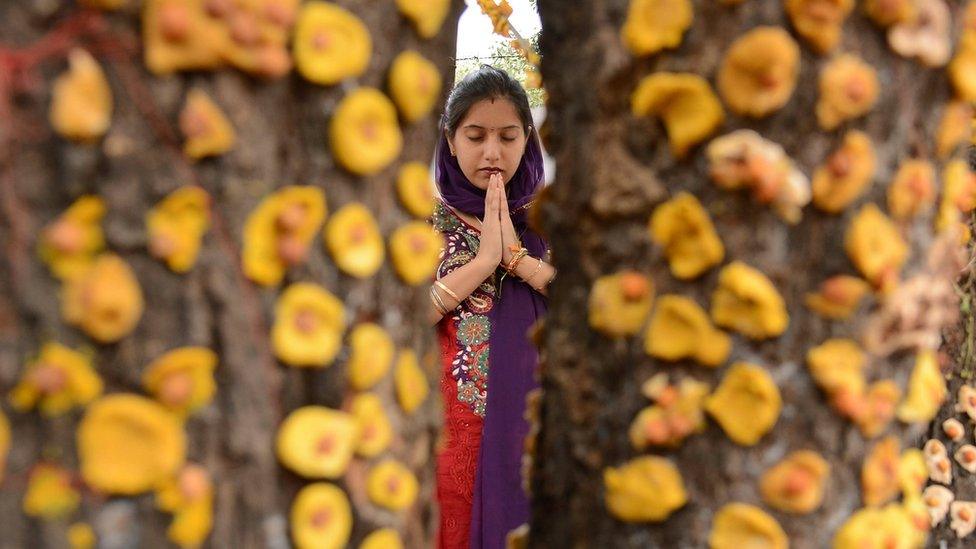
A few temples in India still do not allow women worshippers
For centuries, temples and shrines in India have used "tradition" to keep women out, but now women are increasingly fighting for their right to worship, writes the BBC's Geeta Pandey in Delhi.
In recent weeks, the patriarchal managements of shrines that bar women devotees, have been facing unprecedented challenge.
Last month, several hundred women took part in a march from the western city of Pune towards the Shani Shingnapur temple, external in Ahmednagar district in the state of Maharashtra.
"Our aim was to enter the sanctum sanctorum of the 350-year-old temple which is forbidden to women," Trupti Desai, leader of the protesters and member of a local women's rights group, the Bhumata Brigade, (Women Warriors of Mother Earth) told the BBC.
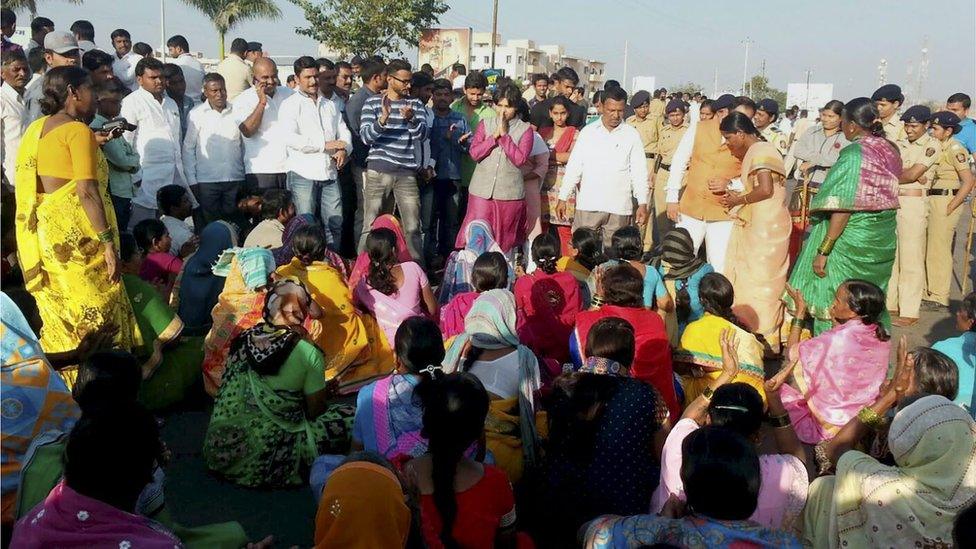
Trupti Desai (standing in the centre with folded hands) led a march to the Shani Shingnapur temple in January
Though they were stopped and detained en route, their spirited attempt succeeded in lodging their protest in the national consciousness.
Ms Desai decided to storm the temple after media reports in November said the temple trust had carried out a "purification ritual" because a woman had climbed the prayer platform and touched the deity.
Ms Desai - who describes herself as a "practising, believing Hindu" - says it is her "constitutional right" to enter any temple and blames patriarchy for keeping women out.
"These are man-made traditions. God does not differentiate between man and woman. He was born of a woman too," she says.
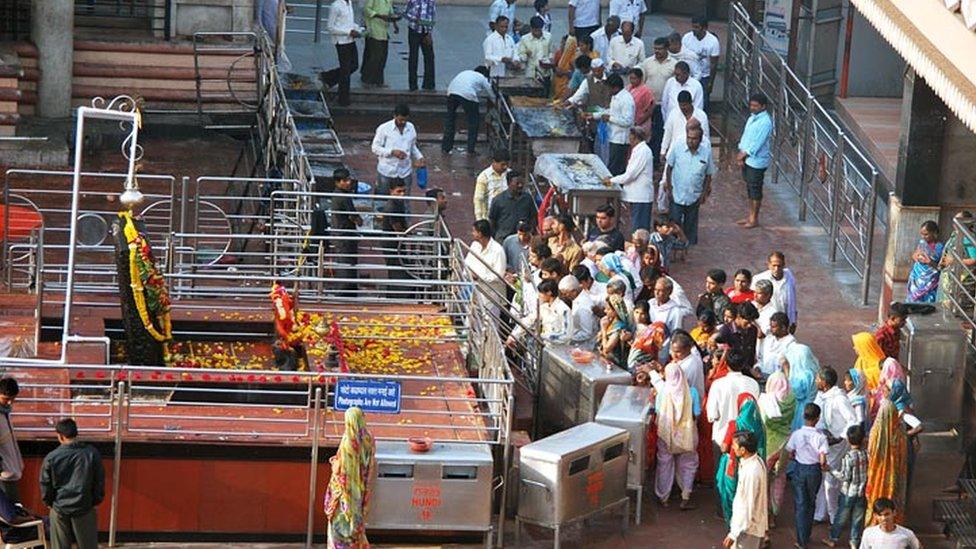
Ms Desai says men are allowed on to the prayer platform if they make a handsome donation
The temple authorities told the BBC that men are not allowed onto the prayer platform either - a claim Ms Desai contests.
"If a man pays 11,111 rupees ($162; £113), he can go up to the platform. I offered to do the same, but I was still denied access," she says.
The protesters have found support from Maharashtra Chief Minister Devendra Fadnavis who has assured them help.
Another temple, Sabarimala in the southern state of Kerala, which bars all women of reproductive age from entering the shrine, has also been in the news recently over similar matters.
In November, a temple official said women would be allowed access there, only if a machine was invented to detect if they were "pure" - meaning that they weren't menstruating. His "sexist" comments prompted an outraged college student to launch a #HappyToBleed campaign on Facebook, which quickly went viral.
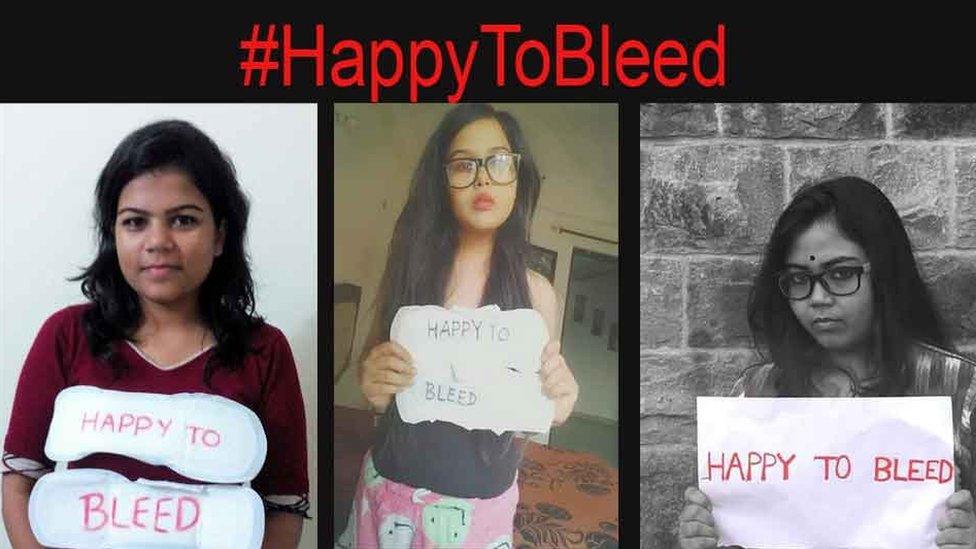
An angry college student launched a #HappyToBleed campaign on Facebook last November
Menstruation is a taboo topic in India, but young women posted photographs on Facebook holding placards - some made up of sanitary napkins and tampons - with the slogan "Happy To Bleed".
The "unconstitutional ban" on women in the temple has now been challenged in the Supreme Court and the petition is being heard.
Although the court is yet to take a decision, at the last hearing, Justice Dipak Mishra wondered, external how women could be kept out of temples since "God does not discriminate between men and women".
In their defence, Sabarimala priests say women are barred because the temple deity - Lord Ayyappa - was a bachelor.
Satara based lawyer-activist Varsha Deshpande, who in 2013 led a group of 10 women into another temple for Hindu god Shani, says the temple authorities told them women "aren't allowed in because Shani doesn't really like women".
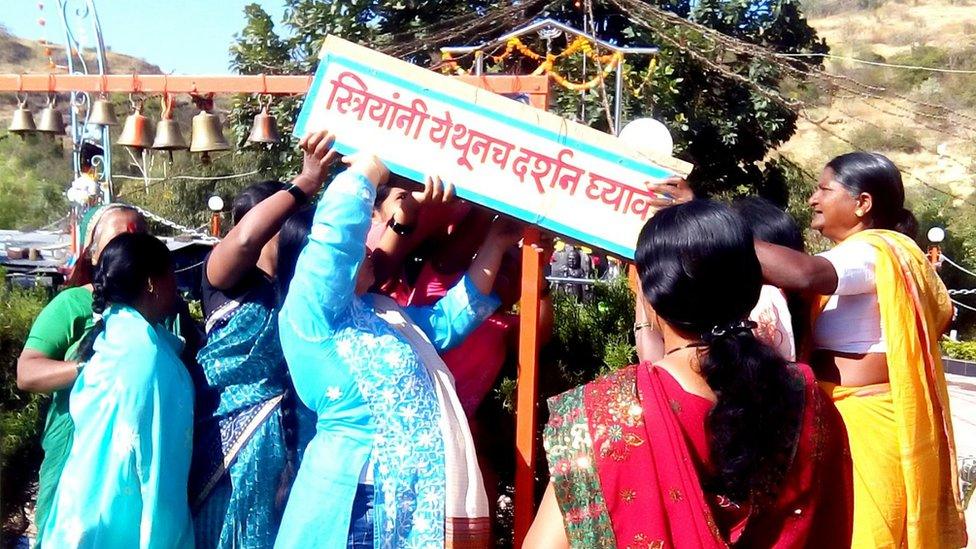
Varsha Deshpande, who led a group of 10 women into a Hindu temple in 2013, uprooted a signboard which said "women cannot go beyond this point"
Ms Desai said the Shani Shingnapur temple officials told her the ban was actually "to protect women since Shani emits radiation which can harm them and cause deformity in a foetus if a pregnant woman enters the temple".
"if that is true, then why are women allowed in other Shani temples?" she asks.
Adds Ms Deshpande: "If women are not afraid and want to go into the temple, how can you stop us? The temple is not in Bangladesh or Pakistan. We don't need a passport or visa to visit it. It's our constitutional right."
And it's not just the Hindus, Muslim women are also fighting for access to the popular 15th Century Haji Ali mosque in Mumbai.
The Bharatiya Muslim Mahila Andolan (BMMA) - a Muslim women's rights group - has filed a petition in the Bombay High Court, external demanding entry into the shrine.
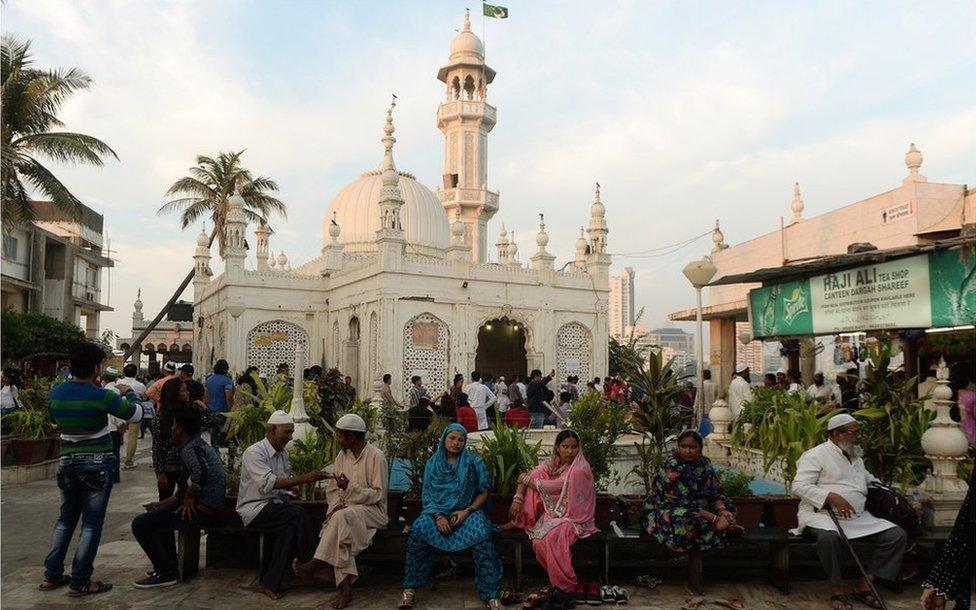
Muslim women are fighting for access to the popular 15th Century Haji Ali mosque in Mumbai
What is most shocking is that women were allowed into the mosque's mausoleum until 2011, when the trust decided that close female proximity to the tomb of a revered saint was "a grievous sin" in Islam.
"All religions are discriminatory towards women," says Ms Deshpande.
"Religion is not meant for women. It's meant to exploit women. We should reject all these religions which are dominated by patriarchy. We should have our own religion - of womanhood."
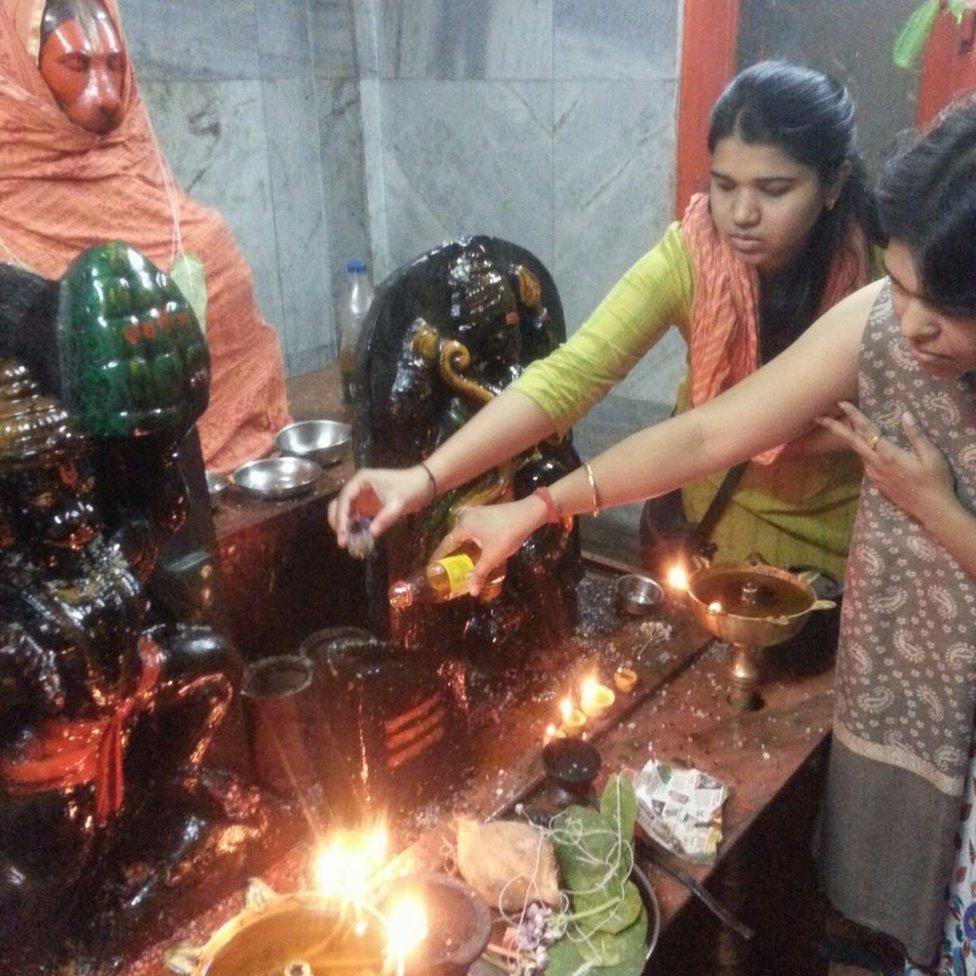
Trupti Desai describes herself as a "practising, believing Hindu"
For her insistence on entering the Shani temple, Ms Desai has also received death threats - last week, a letter arrived in the post, signed by "an opponent".
I ask her if she's afraid.
"Not at all," she says. "I'm doing the right thing. I won't back down because of some threat."
Officials at the Shani Shingnapur temple and Sabarimala say they are bound by tradition and will never allow women worshippers.
But with the voices demanding women's entry into religious shrines growing louder, the men of god may not be able to keep women out of places of worship for much longer.
- Published23 November 2015
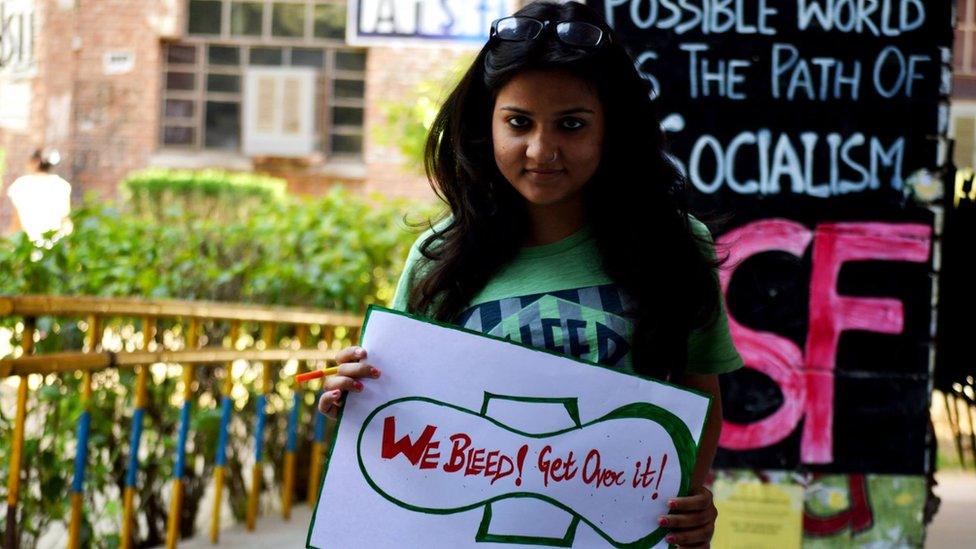
- Published26 January 2016
